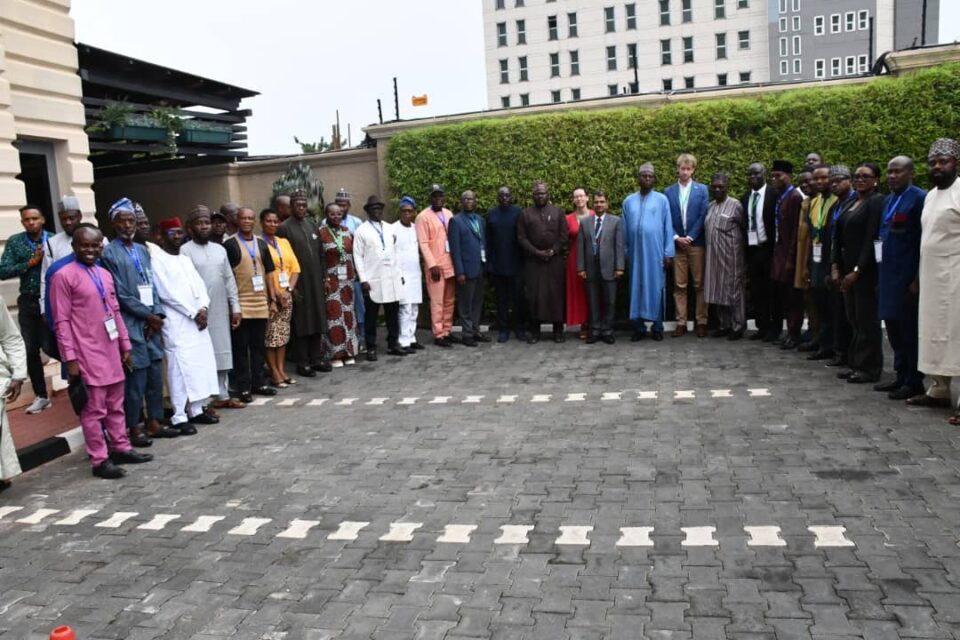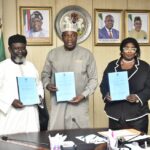By Stella Odueme
The Minister of Water Resources and Sanitation, Engineer Professor Joseph Terlumun Utsev has said that Climate Risk Analysis and Action Plan for Nigeria’s WASH sector will address climate challenges across various sectors and promote innovative solutions that will ensure climate-resilient WASH infrastructure, such.
These include; boreholes and toilets, to ensure sustainable impact and effectiveness for future generations across the country.
Prof Utsev who was represented at the occasion by the Permanent Secretary of the Ministry, Alhaji Shehu Aliyu Shinkafi, said this during the closing of a three-day National Workshop on the Development of Climate Risk Analysis and Action Plan for Water Sanitation and Hygiene (WASH) Sector in Nigeria, organized by his ministry in collaboration with UNICEF and other key stakeholders in Abuja.
Speaking about the Impact of climate change on Communities, the Minister revealed that the increasing hazards of climate change severely impact WASH facilities, leading to social and economic risks such as youth exposure, increased household medical expenses, low agricultural productivity, school dropouts, reduced productivity, and civil unrest among others.
He affirmed that the Climate Risk Analysis and Action Plan for the WASH sector is designed to address these challenges directly, provide a comprehensive framework that assesses the current climate situations in each Geopolitical Zone of Nigeria and offer innovative solutions to improve WASH services aimed at ensuring long-term, climate-resilient WASH infrastructure.
The Minister emphasized that the recent cholera outbreaks underscores the urgent need to strengthen WASH services nationwide.
He highlighted a commitment to collaboration, promoting behavioral change, enhancing capacity through training, leveraging innovative technology, and pooling resources, knowledge, and expertise from various Federal Ministries, Departments, Agencies (MDAs), State Governments, NGOs, and Development Partners.
He also stressed the importance of actively engaging communities and educating both children and adults on the significance of adopting Climate Resilient WASH practices.
He urged all stakeholders to actively participate in this initiative and reaffirmed the Ministry’s commitment to allocate resources, enact policies, and create an enabling environment for Climate Resilient WASH.
He called upon State Governments and partners to mobilize communities, raise awareness, and ensure accountability among Stakeholders. The Minister also encouraged the private sector to contribute through innovative technologies, investments, and corporate social responsibility initiatives.
He expressed gratitude to UNICEF for initiating the Climate Risk Analysis for the WASH sector and for their ongoing support.
He emphasized the crucial role of UNICEF and other Development Partners in providing technical assistance, sharing best practices, and facilitating knowledge exchange.
In his remarks, Mr. Mukaila Segun Babarinde, Director of Hydrology at the Federal Ministry of Water Resources and Sanitation, highlighted the challenges posed by erratic rainfall patterns and rising sea levels on Nigeria’s already fragile WASH infrastructure, particularly during floods and droughts.
He maintained that the success of the action plan hinges on a profound dedication to its goals and a cohesive collaborative effort among all stakeholders involved.
Goodwill messages were delivered by WASH Manager UNICEF Nigeria Chiranjibi Tiwari, Nanpet Chuktu of WaterAid, Representative of States’ RUWASSAs, the General Manager of Yobe State RUWASSA, Mr. Liman Abubakar, and Chairman Ministerial and Policy Advisory Committee,Represented by Dr Dauda Gowon.
Highlights of the closing session included an overview of the action plan for the prioritized solutions, detailing next steps and discussing bottlenecks, costs, and a high-level briefing on critical activities.



